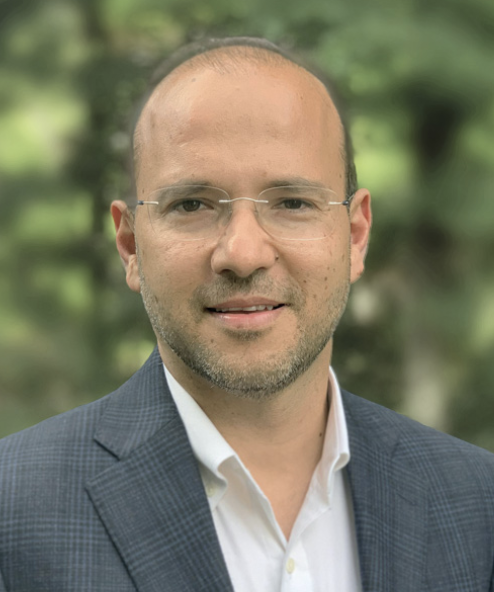预约演示
更新于:2024-11-01

Aragen Life Sciences, Ltd.
更新于:2024-11-01
概览
关联
100 项与 Aragen Life Sciences, Ltd. 相关的临床结果
登录后查看更多信息
0 项与 Aragen Life Sciences, Ltd. 相关的专利(医药)
登录后查看更多信息
16
项与 Aragen Life Sciences, Ltd. 相关的文献(医药)2024-03-01·SEPARATION SCIENCE PLUS
Stress degradation study of Etoricoxib, isolation, and characterization of major degradation impurity by preparative high‐performance liquid chromatography, liquid chromatography‐mass spectrometry, and nuclear magnetic resonance: Validation of ultra‐performance liquid chromatography method
作者: Shyamala, Pulipaka ; Goguladinne, Babu Reddy ; Rao, K. M. V. Narayana
2023-12-01·International Journal of Biological Macromolecules
Xanthan gum-based copper nano-magnetite doped carbon aerogel: A promising candidate for environmentally friendly catalytic dye degradation
Article
作者: Yadav, Nisha ; Srivastava, Gaurav Kumar ; Singh, Jay ; Mudgal, Deeksha ; Mishra, Vivek
2023-09-28·Journal of medicinal chemistry1区 · 医学
Discovery and Characterization of Novel CNS-Penetrant GPR55 Agonists.
1区 · 医学
Article
作者: Powell, Justin A C ; Narayana, Lakshminarayana ; Dickson, Louise ; Sheardown, Steven ; Carlton, Mark ; Pickford, Philip ; Doyle, Kevin J ; Xu, Xiao ; Christie, Louisa A ; Cheung, Toni ; Roberts, Maxine J ; Cadwalladr, David H ; Teall, Martin ; Brice, Nicola L ; Dawson, Lee A ; Hewer, Richard C ; Bürli, Roland W
11
项与 Aragen Life Sciences, Ltd. 相关的新闻(医药)2024-10-10
MILAN
— CDMOs are increasingly fielding inquiries from biopharma clients on how reliant they are on China for their raw materials, off the back of industry anxiety on how the Biosecure Act would play out, manufacturing executives told
Endpoints News
.
“We’ve had customers coming in and saying, ‘I want you to make this product for me. Tell me how much of a China dependency you have in that exactly’,” Aragen Life Sciences’ Chief Commercial Officer Ashu Tandon said on the sidelines of the annual Convention of Pharmaceutical Ingredients confab in Milan. Aragen sources around a quarter of its raw materials from China, which is a drop from about 60% from three years ago, Tandon added.
Swiss-headquartered CDMO CordenPharma is also looking for a more localized approach for raw materials, Stephen Houldsworth, VP and global head of platform management and marketing, told
Endpoints News
. “We have serious conversations with our customers over our raw material strategy,” he added.
But shifting raw material supply chains out of China is not straightforward because it’s been the go-to for decades, particularly because of lower costs, Houldsworth said. And cost impact is at the forefront of manufacturers’ agendas, considering other external pressures like the Inflation Reduction Act in the US, which is likely to squeeze the cost of raw materials for affected drugs, Tandon added.
Manufacturers are looking to India as an alternative to China. India-based Aragen is building its raw material sourcing at a local level, as it focuses on investing in local suppliers and startups to help the country’s raw material supply, Tandon said.
The Biosecure Act
passed the House
in September, with many biopharma companies
assessing
their supply chains. According to a CPHI
report
, 70% of survey respondents said geopolitical tensions are the biggest threat to biological supply chain resilience.
While CDMOs outside of China have spotlighted how the bill
would be an opportunity
for them to bolster their client list, such manufacturers are also dependent on China to varying degrees on their raw materials. The bill has a
grandfather clause
that gives biopharma and CDMO companies some time to review and potentially make new arrangements.
While there’s more discussion about moving raw material sourcing outside China, this overall trend is not new because of the Covid pandemic, India-based CDMO Syngene CEO Jonathan Hunt said. “If we had everything in China — what happens if there’s a problem with China?”
Other factors such as reducing manufacturing carbon footprint are also a reason for CDMOs and their biopharma customers to source services more locally, Germany-based Rentschler Biopharma CEO Benedikt von Braunmühl added.
The execs said there is doubt if there will be a complete exit out of China in raw material supply.
Biopharma companies with candidates in the earlier stages will be more concerned about moving their studies along as quickly as possible, rather than changing suppliers, said Jeremie Trochu, CEO of the Belgium-headquartered manufacturer Ardena. Meanwhile, companies with assets in Phase 3 trials and in commercial production would be more concerned with shifting as they have longer-term plans, he added.

临床3期
2024-06-11
·药通社
《我不是药神》原型人物陆勇先生
将于周四晚上8点特别做客逍药圈直播间
我们诚挚邀请您的参与!
声明:因水平有限,错误不可避免,或有些信息非最及时,欢迎留言指出。本文仅作医疗健康相关药物介绍,非治疗方案推荐(若涉及);本文不构成任何投资建议。
拜登政府正在加强对生物安全的战略关注,美国国会两党共同提出的《生物安全法案》(BIOSECURE Act)是其行为的映照,该法案中提及了药明康德、华大基因、华大智造(MGI)及其子公司Complete Genomics等企业,因此其可能释出的市场份额,也成为其他公司虎视眈眈的目标。
印度CDMO已经敏锐地注意到市场的变化,并调整战略以期更好地应对处于增长中的市场,目前已知有三家印度CDMO摩拳擦掌准备抓住这一机遇。
前情回顾
当地时间5月15日上午10时,众议院监督委员会进行了表决。在此过程中,委员会成员就法案的具体内容进行了辩论,并提出了修改建议,最终以压倒性的40:1的票数通过了《生物安全法案》。但这并不意味着最终立法,后续仍有修改或终止的可能性。
原文+会议原视频内容详见:委员会通过修订法案!5.15众议院听证会:药明康德缓刑(附现场+翻译稿)
该法案旨在确保涉及美国国家安全的外国对手生物技术公司无法获得美国纳税人的资金。
值得注意的是,药明康德、药明生物、华大基因、华大智造(MGI)及其子公司 Complete Genomics 等大型企业都在法案的监管范围之内。该法案日前曾作出修订,明确将美国生物医药行业与这些公司脱钩的最后期限设定在2032年1月1日,这延长了企业寻找新的合作伙伴的缓冲时间。
根据GlobalData数据库所示,超过45家总部位于美国的公司已与上文提及的公司签订了合同服务协议 (CSA)、许可协议或合作协议。可能因《BIOSECURE法案》而受到威胁的药物中超过2/3由美国上市公司开发,其中约60%已经上市或处于后期临床阶段(II-III期)试验阶段。鉴于一种药物通常需要十多年的时间才能进入市场,这表明生物制药行业的重要参与者和这些中国主要公司之间存在着长期的合作关系。
包括Merck、Gilead和Vertex Pharmaceuticals在内的多家生物制药公司在其公司文件中均指出,《生物安全法案》可能带来成本增加、临床试验延迟、美国食品药品监督管理局 (FDA) 监管提交以及药品上市等影响。
此外,拥有从中国公司获得药物许可的生物制药公司是否会面临FDA越来越严格的监管,以及这些药物的医疗保险和医疗补助报销是否会受到影响仍有待观察。
随着生物制药公司寻求在《生物安全法案》规定的2032年最后期限之前实现供应商多元化,总部位于中国境外的CDMO在未来十年可能会经历更快的增长。
尤其是印度的CDMO公司,印度拥有蓬勃发展的生物技术行业、熟练的劳动力和具有竞争力的成本优势,或许可以成为填补这一空白的有力竞争者。首当其冲的就有以下三家CDMO:
01
Syngene
Syngene成立于1993年,是Biocon旗下上市合同研究和制造服务子公司,是一家合同研究、开发和制造组织(CRDMO),为制药、生物技术、动物保健、消费品和农化公司提供综合发现、开发和制造服务。Syngene拥有独特的商业模式、由6000多名科学家组成的人才库、新治疗模式的科学专业知识、经验丰富的管理团队和独立的董事会委员会,为全球客户提供服务。
Syngene吸引了全球排名前15位的制药公司中的11家,包括GSK、Janssen、Zoetis、Merck KGaA、Amgen、Baxter和Bristol-Myers Squibb。
该公司声称已 “做好充分准备”,从双重采购动态中捕捉机遇,帮助客户降低过度依赖中国带来的风险。公司加强了双供应链战略,为原材料、中间体和起始原料提供基于中国和独立于中国的采购选择。
此外,Syngene还通过投资大幅扩展其生物制造能力,如收购Unit III,其拥有 20KL的一次性使用药物生产能力,到2024年底,每天可灌装100万瓶药物。CRDMO还将CAR-T细胞、mRNA、抗体药物共轭物 (ADC) 和寡核苷酸等先进技术纳入其服务之中。
Syngene的高级副总裁Alex Del Priore表示:“无论有没有《生物安全法案》,印度都存在着蓬勃发展的机会。自大流行病以来,公司一直在观察一种稳定的变化;全球制药公司越来越多地开始将印度和东南亚作为替代供应链目的地。然而,最近在美国发生的新闻显然加速了大流行后的这些供应方变化。最重要的是,公司始终将质量放在首位,公司按照全球科学的统一标准运作,追求卓越,严格遵守监管规定。无论是美国FDA、欧洲还是印度监管机构,都能达到其标准。”
02
Enzene
Enzene是全球性的CDMO和生物仿制药开发商,隶属于Alkem laboratories(印度十大制药公司之一),位于印度浦那,拥有300多名员工。Enzene专注于生产生物仿制药、植物药和合成肽,同时进军新型生物制剂和再生医学,并拥有针对国内和全球市场的强大生物仿制药管道。该管道由其灵活的哺乳动物细胞生产平台(EnzeneX)实现,该平台可能是印度唯一采用连续生产商业化生产单克隆抗体的平台。
Enzene公司首席执行官Himanshu Gadgil博士也认为,在《BIOSECURE法案》颁布后,印度CDMO市场将迎来发展机遇。
该法案和相关变化正促使一些西方制药、生物技术和其他生命科学企业重新审视自己的战略。印度市场的魅力在于其成本效益和对高质量生产解决方案的承诺。印度的CDMO已经发展到与全球同行并驾齐驱的水平,能够提供经济实惠的生产解决方案,并拥有精通西方监管准则的熟练劳动力。
Enzene计划利用其EnzeneX抓住这一机遇,并于今年晚些时候在新泽西州开设新工厂。
EnzeneX为基于哺乳动物系统的全连接连续制造(FCCM)工艺带来了生物加工的革命性变革。与传统的喂料批次法相比,将生产率提高了10倍,商品成本降低了40-45%,占地面积减少了70%。
EnzeneX工作流程(图源:公司官网)
Himanshu Gadgil表示:“随着地缘政治紧张局势和供应链中断的加剧,人们对我们工厂的兴趣发生了明显的转变,这反映了对可靠和多样化生产解决方案的需求。这导致客户来访和咨询增多,凸显了印度CDMO在满足日益增长的生物制剂和先进制造技术需求方面的潜力。”
03
Aragen
Aragen是一家领先的小分子和生物制品合同研发和制造组织(CRDMO)。Aragen拥有20多年在整个药物开发过程中提供一系列合同研究、开发和制造服务的经验,重点关注新分子实体(NME)的早期发现和开发。Aragen涵盖了小分子和大分子项目的整个药物开发过程。公司在全球八个地点设有办事处,拥有约4200名员工和450多名博士学位持有者。
Aragen Life Sciences公司首席商务官Ramesh Subramanian表示:”《生物安全法案》和相关变化正在促使一些西方制药、生物技术和其他生命科学企业重新审视他们的战略。我们正在与我们的几家客户积极讨论他们的未来战略,以便我们能够做好准备,满足他们的近期/中期需求。不过,前进的道路是长期的,不像Covid时期,客户迅速行动,处于恐慌状态。
未来五年,印度CDMO行业的竞争格局将发生重大变化,特别是由于对生物制剂和先进制造技术的日益关注。随着技术的不断发展,人们越来越重视使用最新的数字化和数字化技术,包括AI和ML工具。这不仅有助于提高生产率和产出,还能改善流程和周转时间。”
为此,Aragen正在不断投资于提升产能和人才培养,为任何战略转变做好准备。这包括最近投资2.5亿美元扩建海得拉巴研发和生产设施的计划,在今年年底前上线生物制剂生产能力,以开展GMP生产,并扩大公司在小分子领域的研发和生产足迹。通过战略投资,公司还在扩大小分子和生物制剂业务的能力。
近期新增的业务包括加强药物产品服务,以及在班加罗尔开设一家生物制剂试验工厂,该工厂能够进行非GMP生产,批量可达50L。公司还计划增加GMP生产能力,以提供200L至 2KL的批量产品。
此外,Aragen 正在其加州园区扩大大规模生物制造能力,并专注于寡核苷酸、肽和抗体-药物偶联物 (ADC) 等细分领域。
在Subramanian看来,印度有几个 “独特的优势”使其成为CDMO领域具有吸引力的选择。包括:熟练的英语劳动力、符合全球监管审批的良好质量记录,以及对西方质量期望的熟悉程度。
总结
对生物制剂和先进制造技术的日益关注,加上地缘政治的变化和供应链多样化的需求,使印度成为对寻求可靠和创新的CDMO合作伙伴的公司和投资者具有吸引力的目的地。促进制药研究计划(PRIP)和生产挂钩激励计划(PLI)等政府举措也为研发和生产提供了强有力的支持。
除印度外,将分食药明康德市场份额的潜在竞争对手还可能有Evotec、Catalent、Boehringer Ingeelheim、FujifilmDiosynth、Thermo Fisher、Samsung Biologics等,在外媒采访中均表示拒绝受访或是发出沉默声明。
不过,《生物安全法案》最终是否会如期上路、以及冲击产业供应链的程度,目前也犹未可知,一些竞争对手也表示现在判断他们是否会获得大量业务还为时过早。
参考资料:
[1]https://www.biopharma-reporter.com/Article/2024/06/06/Three-Indian-CDMOs-ready-to-seize-the-BIOSECURE-Act-opportunity
[2]https://www.pharmaceutical-technology.com/
2024 CMC(CRO&MAH&CMO)博览会,将于8月15-16日在苏州国际博览中心C、D、E馆召开,内容涵盖前沿法规政策、MAH、改良型新药、吸入制剂、透皮制剂、中药、缓控释制剂、注射剂、原料药、辅料领域热点话题。
一键报名 · 见证合作!
限量!扫描二维码抢免费门票
推荐阅读
临床3期
2024-06-07
·药事纵横
声明:因水平有限,错误不可避免,或有些信息非最及时,欢迎留言指出。本文仅作医疗健康相关药物介绍,非治疗方案推荐(若涉及);本文不构成任何投资建议。
在中美紧张局势升级之后,拜登政府正在加强对生物安全的战略关注。美国国会两党共同提出的《生物安全法案》(BIOSECURE Act)是其行为的映照,该法案中提及了药明康德、华大基因、华大智造(MGI)及其子公司Complete Genomics等企业,因此其可能释出的市场份额,也成为其他公司虎视眈眈的目标。印度CDMO已经敏锐地注意到市场的变化,并调整战略以期更好地应对处于增长中的市场,目前已知有三家印度CDMO摩拳擦掌准备抓住这一机遇。
前情回顾
当地时间5月15日上午10时,众议院监督委员会进行了表决。在此过程中,委员会成员就法案的具体内容进行了辩论,并提出了修改建议,最终以压倒性的40:1的票数通过了《生物安全法案》。但这并不意味着最终立法,后续仍有修改或终止的可能性。
该法案旨在确保涉及美国国家安全的外国对手生物技术公司无法获得美国纳税人的资金。值得注意的是,药明康德、药明生物、华大基因、华大智造(MGI)及其子公司 Complete Genomics 等大型企业都在法案的监管范围之内,这些被点名的公司据称与中国军方利用美国公民的基因数据开发生物武器和开展其他军事行动有关。该法案日前曾作出修订,明确将美国生物医药行业与这些公司脱钩的最后期限设定在2032年1月1日,这延长了企业寻找新的合作伙伴的缓冲时间。
根据GlobalData数据库所示,超过45家总部位于美国的公司已与上文提及的公司签订了合同服务协议 (CSA)、许可协议或合作协议。可能因《BIOSECURE法案》而受到威胁的药物中超过2/3由美国上市公司开发,其中约60%已经上市或处于后期临床阶段(II-III期)试验阶段。鉴于一种药物通常需要十多年的时间才能进入市场,这表明生物制药行业的重要参与者和这些中国主要公司之间存在着长期的合作关系。
包括Merck、Gilead和Vertex Pharmaceuticals在内的多家生物制药公司在其公司文件中均指出,《BIOSECURE 法案》可能带来成本增加、临床试验延迟、美国食品药品监督管理局 (FDA) 监管提交以及药品上市等影响。此外,拥有从中国公司获得药物许可的生物制药公司是否会面临FDA越来越严格的监管,以及这些药物的医疗保险和医疗补助报销是否会受到影响仍有待观察。
随着生物制药公司寻求在《生物安全法案》规定的2032年最后期限之前实现供应商多元化,总部位于中国境外的CDMO在未来十年可能会经历更快的增长。
尤其是印度的CDMO公司,印度拥有蓬勃发展的生物技术行业、熟练的劳动力和具有竞争力的成本优势,或许可以成为填补这一空白的有力竞争者,首当其冲的就有以下三家CDMO:
01
Syngene
Syngene成立于1993年,是Biocon旗下上市合同研究和制造服务子公司,是一家合同研究、开发和制造组织(CRDMO),为制药、生物技术、动物保健、消费品和农化公司提供综合发现、开发和制造服务。Syngene拥有独特的商业模式、由6000多名科学家组成的人才库、新治疗模式的科学专业知识、经验丰富的管理团队和独立的董事会委员会,为全球客户提供服务。
Syngene吸引了全球排名前15位的制药公司中的11家,包括GSK、Janssen、Zoetis、Merck KGaA、Amgen、Baxter和Bristol-Myers Squibb。
该公司声称已 “做好充分准备”,从双重采购动态中捕捉机遇,帮助客户降低过度依赖中国带来的风险。公司加强了双供应链战略,为原材料、中间体和起始原料提供基于中国和独立于中国的采购选择。
此外,Syngene还通过投资大幅扩展其生物制造能力,如收购Unit III,其拥有 20KL的一次性使用药物生产能力,到2024年底,每天可灌装100万瓶药物。CRDMO还将CAR-T细胞、mRNA、抗体药物共轭物 (ADC) 和寡核苷酸等先进技术纳入其服务之中。
Syngene的高级副总裁Alex Del Priore表示:“无论有没有”BIOSECURE法案”,印度都存在着蓬勃发展的机会。自大流行病以来,公司一直在观察一种稳定的变化;全球制药公司越来越多地开始将印度和东南亚作为替代供应链目的地。然而,最近在美国发生的新闻显然加速了大流行后的这些供应方变化。最重要的是,公司始终将质量放在首位,公司按照全球科学的统一标准运作,追求卓越,严格遵守监管规定。无论是美国FDA、欧洲还是印度监管机构,都能达到其标准。”
02
Enzene
Enzene是全球性的CDMO和生物仿制药开发商,隶属于Alkem laboratories(印度十大制药公司之一),位于印度浦那,拥有300多名员工。Enzene专注于生产生物仿制药、植物药和合成肽,同时进军新型生物制剂和再生医学,并拥有针对国内和全球市场的强大生物仿制药管道。该管道由其灵活的哺乳动物细胞生产平台(EnzeneX)实现,该平台可能是印度唯一采用连续生产商业化生产单克隆抗体的平台。
Enzene公司首席执行官Himanshu Gadgil博士也认为,在《BIOSECURE法案》颁布后,印度CDMO市场将迎来发展机遇。该法案和相关变化正促使一些西方制药、生物技术和其他生命科学企业重新审视自己的战略。印度市场的魅力在于其成本效益和对高质量生产解决方案的承诺。印度的CDMO已经发展到与全球同行并驾齐驱的水平,能够提供经济实惠的生产解决方案,并拥有精通西方监管准则的熟练劳动力。
Enzene计划利用其EnzeneX抓住这一机遇,并于今年晚些时候在新泽西州开设新工厂。EnzeneX为基于哺乳动物系统的全连接连续制造(FCCM)工艺带来了生物加工的革命性变革。与传统的喂料批次法相比,将生产率提高了10倍,商品成本降低了40-45%,占地面积减少了70%。
EnzeneX工作流程(图源:公司官网)
Himanshu Gadgil表示:“随着地缘政治紧张局势和供应链中断的加剧,人们对我们工厂的兴趣发生了明显的转变,这反映了对可靠和多样化生产解决方案的需求。这导致客户来访和咨询增多,凸显了印度CDMO在满足日益增长的生物制剂和先进制造技术需求方面的潜力。”
03
Aragen
Aragen是一家领先的小分子和生物制品合同研发和制造组织(CRDMO)。Aragen拥有20多年在整个药物开发过程中提供一系列合同研究、开发和制造服务的经验,重点关注新分子实体(NME)的早期发现和开发。Aragen涵盖了小分子和大分子项目的整个药物开发过程。公司在全球八个地点设有办事处,拥有约4200名员工和450多名博士学位持有者。
Aragen Life Sciences公司首席商务官Ramesh Subramanian表示:”《生物安全法案》和相关变化正在促使一些西方制药、生物技术和其他生命科学企业重新审视他们的战略。我们正在与我们的几家客户积极讨论他们的未来战略,以便我们能够做好准备,满足他们的近期/中期需求。不过,前进的道路是长期的,不像Covid时期,客户迅速行动,处于恐慌状态。
未来五年,印度CDMO行业的竞争格局将发生重大变化,特别是由于对生物制剂和先进制造技术的日益关注。随着技术的不断发展,人们越来越重视使用最新的数字化和数字化技术,包括AI和ML工具。这不仅有助于提高生产率和产出,还能改善流程和周转时间。”
为此,Aragen正在不断投资于提升产能和人才培养,为任何战略转变做好准备。这包括最近投资2.5亿美元扩建海得拉巴研发和生产设施的计划,在今年年底前上线生物制剂生产能力,以开展GMP生产,并扩大公司在小分子领域的研发和生产足迹。通过战略投资,公司还在扩大小分子和生物制剂业务的能力。
近期新增的业务包括加强药物产品服务,以及在班加罗尔开设一家生物制剂试验工厂,该工厂能够进行非GMP生产,批量可达50L。公司还计划增加GMP生产能力,以提供200L至 2KL的批量产品。
此外,Aragen 正在其加州园区扩大大规模生物制造能力,并专注于寡核苷酸、肽和抗体-药物偶联物 (ADC) 等细分领域。
在Subramanian看来,印度有几个 “独特的优势”使其成为CDMO领域具有吸引力的选择。包括:熟练的英语劳动力、符合全球监管审批的良好质量记录,以及对西方质量期望的熟悉程度。
总结
对生物制剂和先进制造技术的日益关注,加上地缘政治的变化和供应链多样化的需求,使印度成为对寻求可靠和创新的CDMO合作伙伴的公司和投资者具有吸引力的目的地。促进制药研究计划(PRIP)和生产挂钩激励计划(PLI)等政府举措也为研发和生产提供了强有力的支持。
除印度外,将分食药明康德市场份额的潜在竞争对手还可能有Evotec、Catalent、Boehringer Ingeelheim、FujifilmDiosynth、Thermo Fisher、Samsung Biologics等,在外媒采访中均表示拒绝受访或是发出沉默声明。不过,《生物安全法案》最终是否会如期上路、以及冲击产业供应链的程度,目前也犹未可知,一些竞争对手也表示现在判断他们是否会获得大量业务还为时过早。
参考资料:
[1]https://www.biopharma-reporter.com/Article/2024/06/06/Three-Indian-CDMOs-ready-to-seize-the-BIOSECURE-Act-opportunity
[2]https://www.pharmaceutical-technology.com/
临床3期临床失败
100 项与 Aragen Life Sciences, Ltd. 相关的药物交易
登录后查看更多信息
100 项与 Aragen Life Sciences, Ltd. 相关的转化医学
登录后查看更多信息
组织架构
使用我们的机构树数据加速您的研究。
登录
或

管线布局
2026年02月09日管线快照
无数据报导
登录后保持更新
药物交易
使用我们的药物交易数据加速您的研究。
登录
或

转化医学
使用我们的转化医学数据加速您的研究。
登录
或

营收
使用 Synapse 探索超过 36 万个组织的财务状况。
登录
或

科研基金(NIH)
访问超过 200 万项资助和基金信息,以提升您的研究之旅。
登录
或

投资
深入了解从初创企业到成熟企业的最新公司投资动态。
登录
或

融资
发掘融资趋势以验证和推进您的投资机会。
登录
或

生物医药百科问答
全新生物医药AI Agent 覆盖科研全链路,让突破性发现快人一步
立即开始免费试用!
智慧芽新药情报库是智慧芽专为生命科学人士构建的基于AI的创新药情报平台,助您全方位提升您的研发与决策效率。
立即开始数据试用!
智慧芽新药库数据也通过智慧芽数据服务平台,以API或者数据包形式对外开放,助您更加充分利用智慧芽新药情报信息。
生物序列数据库
生物药研发创新
免费使用
化学结构数据库
小分子化药研发创新
免费使用